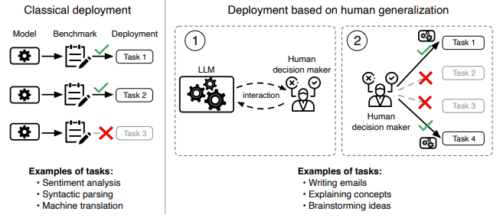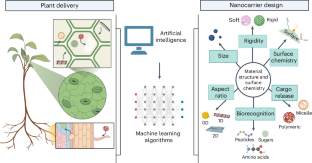2024-07-23 マサチューセッツ工科大学(MIT)
<関連情報>
- https://news.mit.edu/2024/large-language-models-dont-behave-like-people-0723
- https://arxiv.org/abs/2406.01382
大規模言語モデルは人間の期待通りに動作するか?人間の汎化関数を測定する Do Large Language Models Perform the Way People Expect? Measuring the Human Generalization Function
Keyon Vafa, Ashesh Rambachan, Sendhil Mullainathan
arXiv Submitted on 3 Jun 2024
DOI:https://arxiv.org/abs/2406.01382

Abstract
What makes large language models (LLMs) impressive is also what makes them hard to evaluate: their diversity of uses. To evaluate these models, we must understand the purposes they will be used for. We consider a setting where these deployment decisions are made by people, and in particular, people’s beliefs about where an LLM will perform well. We model such beliefs as the consequence of a human generalization function: having seen what an LLM gets right or wrong, people generalize to where else it might succeed. We collect a dataset of 19K examples of how humans make generalizations across 79 tasks from the MMLU and BIG-Bench benchmarks. We show that the human generalization function can be predicted using NLP methods: people have consistent structured ways to generalize. We then evaluate LLM alignment with the human generalization function. Our results show that — especially for cases where the cost of mistakes is high — more capable models (e.g. GPT-4) can do worse on the instances people choose to use them for, exactly because they are not aligned with the human generalization function.



